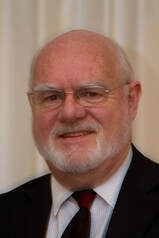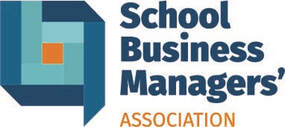Workshops 4

Thursday 11 July, 10:45am - 12:15pm
4.1 An Introduction to Wellbeing (Repeat)
Modern workplaces and today’s schools have many common challenges – high workloads, constant pressure, long hours, changing technologies and escalating social issues – which can impact significantly on staff wellbeing, increasing the incidence of stress and mental health and addiction challenges. This workshop will introduce some fundamental concepts to help school leaders recognise and understand mental health and substance use issues, to appropriately respond to and support people who may show signs of stress and distress in the workplace, and to promote wellbeing in your organisation to help prevent issues arising.
Patrice Dennis, Blueprint for Learning
BHSc(Nursing) MMusTher (Hons) Patrice has worked as a registered nurse in the mental health and addiction sector in Aotearoa for 15 years, in a number of nursing and education roles. Before moving to Blueprint for Learning, she worked for Wellington Addiction Services. In her current role, Patrice provides leadership for the successful delivery of the MH101 workshop. MH101 is a one-day workshop that is designed to increase the confidence of frontline government and social agency staff who will encounter people with experience of mental distress and/or addictions. It is now delivered to a variety of organisations and communities across Aotearoa. Patrice has always been committed to working in partnership with people, their whānau and communities, acknowledging and valuing peoples’ personal experiences as well as her own. She is passionate about continuing to improve mental health care and understanding in Aotearoa.
Charlotte Heather, Blueprint for Learning
4.1 An Introduction to Wellbeing (Repeat)
Modern workplaces and today’s schools have many common challenges – high workloads, constant pressure, long hours, changing technologies and escalating social issues – which can impact significantly on staff wellbeing, increasing the incidence of stress and mental health and addiction challenges. This workshop will introduce some fundamental concepts to help school leaders recognise and understand mental health and substance use issues, to appropriately respond to and support people who may show signs of stress and distress in the workplace, and to promote wellbeing in your organisation to help prevent issues arising.
- Why mental health and wellbeing in the workplace matters
- Common mental health and addiction issues in the workplace and how to recognise them
- How to approach someone experiencing mental distress in the workplace
- Hands-on approaches to promoting wellbeing
- Where to get assistance and ongoing support
Patrice Dennis, Blueprint for Learning
BHSc(Nursing) MMusTher (Hons) Patrice has worked as a registered nurse in the mental health and addiction sector in Aotearoa for 15 years, in a number of nursing and education roles. Before moving to Blueprint for Learning, she worked for Wellington Addiction Services. In her current role, Patrice provides leadership for the successful delivery of the MH101 workshop. MH101 is a one-day workshop that is designed to increase the confidence of frontline government and social agency staff who will encounter people with experience of mental distress and/or addictions. It is now delivered to a variety of organisations and communities across Aotearoa. Patrice has always been committed to working in partnership with people, their whānau and communities, acknowledging and valuing peoples’ personal experiences as well as her own. She is passionate about continuing to improve mental health care and understanding in Aotearoa.
Charlotte Heather, Blueprint for Learning

4.2 The Importance of Creativity in Effective Leadership
Creativity is one of the most important leadership qualities. This session will provide an overview of the different types of competent leaders, explore what distinguishes creative leaders from the rest, discuss creative leadership actions & ideas and ways leaders can promote creativity in the workplace.
Tom Wohlleber, ASBO President
Tom Wohlleber has served as a school business official since 1985 in the states of Wisconsin and Arizona. He is currently the Chief Financial Officer for the Casa Grande Elementary School District in Casa Grande, Arizona. Tom has been an ASBO International member for over 30 years. He has served as an ASBO International Director from 2013 to 2017. He currently serves the association as its President. Wohlleber has a B.S. degree from the University of Wisconsin - La Crosse with majors in Business Administration and Economics and a Master’s degree from the University of Wisconsin - Whitewater in School Business Management. Tom is a past president of both the Wisconsin Association of School Business Officials (WASBO) and Wisconsin School Safety Coordinators Association (WSSCA). He has received WASBO’s two highest honors, the Wallace E. Zastrow Award and Wisconsin School Business Official of the Year. In 2010, he was awarded the Distinguished Professional Eagle Award from ASBO International. Wohlleber was honored by WSSCA as the 2014 Wisconsin School Safety Coordinator of the Year. Tom serves as a faculty member with the National Alliance for Insurance Education & Research for their Certified School Risk Manager program. He has served on the faculty at Edgewood College and UW-Whitewater in their Educational Administration graduate programs.
Creativity is one of the most important leadership qualities. This session will provide an overview of the different types of competent leaders, explore what distinguishes creative leaders from the rest, discuss creative leadership actions & ideas and ways leaders can promote creativity in the workplace.
Tom Wohlleber, ASBO President
Tom Wohlleber has served as a school business official since 1985 in the states of Wisconsin and Arizona. He is currently the Chief Financial Officer for the Casa Grande Elementary School District in Casa Grande, Arizona. Tom has been an ASBO International member for over 30 years. He has served as an ASBO International Director from 2013 to 2017. He currently serves the association as its President. Wohlleber has a B.S. degree from the University of Wisconsin - La Crosse with majors in Business Administration and Economics and a Master’s degree from the University of Wisconsin - Whitewater in School Business Management. Tom is a past president of both the Wisconsin Association of School Business Officials (WASBO) and Wisconsin School Safety Coordinators Association (WSSCA). He has received WASBO’s two highest honors, the Wallace E. Zastrow Award and Wisconsin School Business Official of the Year. In 2010, he was awarded the Distinguished Professional Eagle Award from ASBO International. Wohlleber was honored by WSSCA as the 2014 Wisconsin School Safety Coordinator of the Year. Tom serves as a faculty member with the National Alliance for Insurance Education & Research for their Certified School Risk Manager program. He has served on the faculty at Edgewood College and UW-Whitewater in their Educational Administration graduate programs.

4.3 School Finance - Parents' Payments
Dennis will explain the rights of parents and students regarding payments in schools and will demistify what can be charged for and what cannot. Get the definitive information about what you can ask parents to pay for and what qualifies for a tax rebate.
Dennis Cribb, Ministry of Education
Dennis began his working life as a teacher (intermediate and secondary) before eventually moving into public sector policy work. At the Department of Internal Affairs, he helped rewrite the Local Government Rating Act and the government provisions of the Local Government Act. He has since negotiated Treaty of Waitangi settlements on behalf of the Crown and headed up the corporate and strategy functions of the Parliamentary Service after establishing a specialist policy function there. At the Ministry of Education, Dennis has looked after matters related to schools' financial governance. He has spent time on secondment to the Ministry's Education Infrastructure Service and to the Budget and Strategy Team. School Governance is now his home.
Please click here to view the presentation.
Dennis will explain the rights of parents and students regarding payments in schools and will demistify what can be charged for and what cannot. Get the definitive information about what you can ask parents to pay for and what qualifies for a tax rebate.
Dennis Cribb, Ministry of Education
Dennis began his working life as a teacher (intermediate and secondary) before eventually moving into public sector policy work. At the Department of Internal Affairs, he helped rewrite the Local Government Rating Act and the government provisions of the Local Government Act. He has since negotiated Treaty of Waitangi settlements on behalf of the Crown and headed up the corporate and strategy functions of the Parliamentary Service after establishing a specialist policy function there. At the Ministry of Education, Dennis has looked after matters related to schools' financial governance. He has spent time on secondment to the Ministry's Education Infrastructure Service and to the Budget and Strategy Team. School Governance is now his home.
Please click here to view the presentation.

4.4 Emergency Response
The objective of this workshop is to understand what schools need to do if their property is damaged due to flood, fire or natural disaster. A key focus will be what can we do now, before disaster strikes to ensure we are able to preserve as much as possible and react quickly to get back up and running again as soon as we can. What should schools have in place in terms of insurance and emergency plans and what are the steps to take when an event occurs? What can the MOE and JLT do to assist us to prepare/respond to an emergency event?
Brian Mitchell, Ministry of Education & Martin Holden, Jardine, Lloyd & Thompson
Brian Mitchell, Group Manager Infrastructure Advisory Service in the Ministry of Education’s Education Infrastructure Service (EIS), is specifically responsible for the leadership of a national, regionally-based team of over 100 personnel charged with improving the condition and functionality of the state school property portfolio. Brian is directly responsible for addressing any school-related property matters, including compliance with all infrastructure based policies and procedures. This role has a service delivery and monitoring focus, and a key element is supporting schools in the production and implementation of their individual long-term property plans, which, across all schools, is the largest item of Ministry-funded capital expenditure in the school sector. Brian has had over 40 years’ experience in public sector infrastructure management, primarily in the Ministry of Education and in a variety of management and leadership roles throughout the country, including capital works delivery, policy development and implementation, and governance of operating functions at the national level.
The objective of this workshop is to understand what schools need to do if their property is damaged due to flood, fire or natural disaster. A key focus will be what can we do now, before disaster strikes to ensure we are able to preserve as much as possible and react quickly to get back up and running again as soon as we can. What should schools have in place in terms of insurance and emergency plans and what are the steps to take when an event occurs? What can the MOE and JLT do to assist us to prepare/respond to an emergency event?
Brian Mitchell, Ministry of Education & Martin Holden, Jardine, Lloyd & Thompson
Brian Mitchell, Group Manager Infrastructure Advisory Service in the Ministry of Education’s Education Infrastructure Service (EIS), is specifically responsible for the leadership of a national, regionally-based team of over 100 personnel charged with improving the condition and functionality of the state school property portfolio. Brian is directly responsible for addressing any school-related property matters, including compliance with all infrastructure based policies and procedures. This role has a service delivery and monitoring focus, and a key element is supporting schools in the production and implementation of their individual long-term property plans, which, across all schools, is the largest item of Ministry-funded capital expenditure in the school sector. Brian has had over 40 years’ experience in public sector infrastructure management, primarily in the Ministry of Education and in a variety of management and leadership roles throughout the country, including capital works delivery, policy development and implementation, and governance of operating functions at the national level.

Martin Holden has extensive experience in the design and day to day management of a range of large property and liability (re)insurance programs covering a variety of sectors, including central & local government, power, construction and others. Martin’s specialist knowledge and experience in helping clients find innovative risk transfer and risk financing solutions that most appropriately fit their needs, together with his excellent relationship management skills and well rounded skill-set, gives him the ability, confidence and experience to confront and resolve issues effectively.
Please click here to view the presentation.
Please click here to view the presentation.

